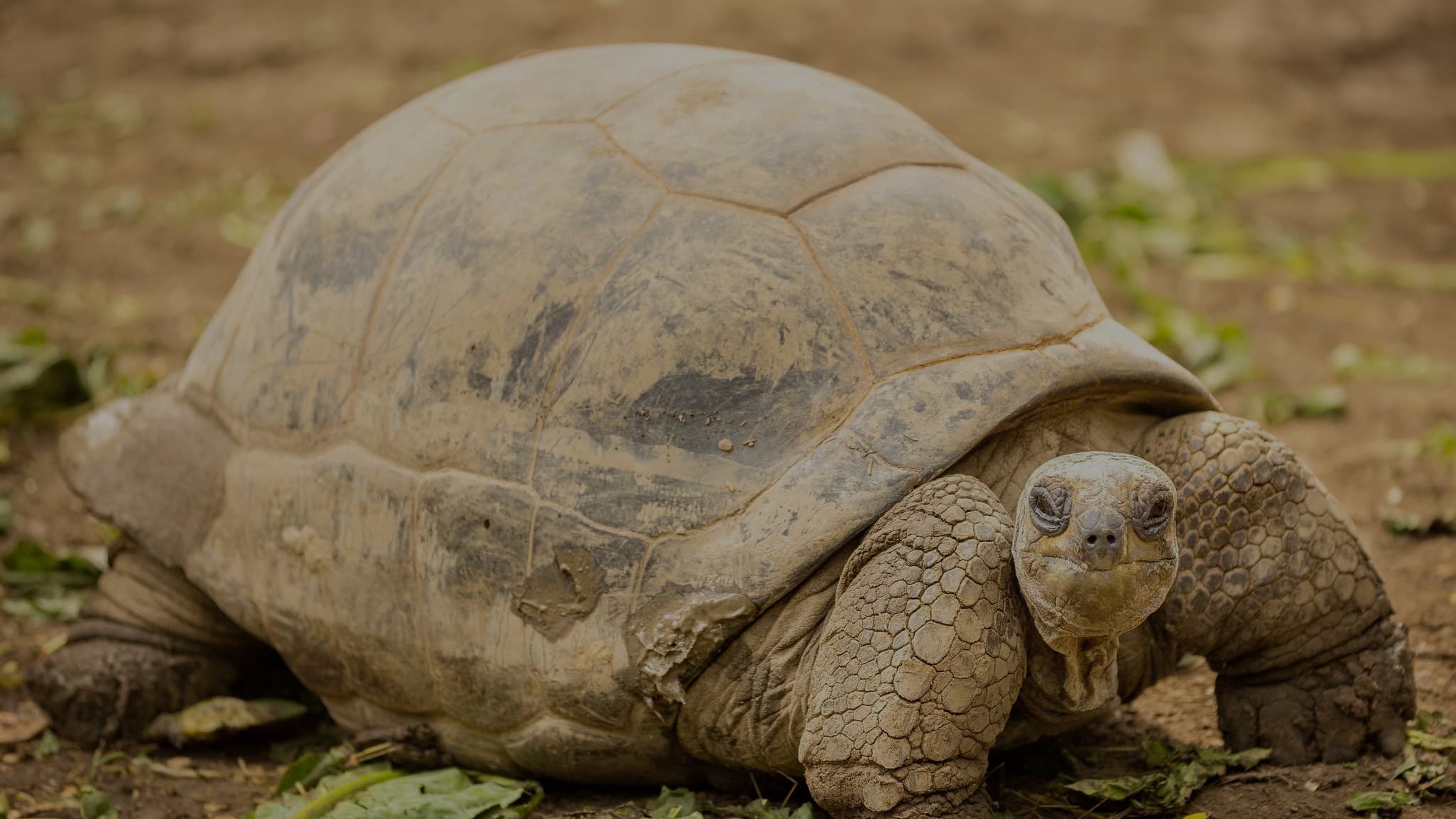
Center for Chelonian Conservation

Background
Chelonians (turtles and tortoises), are the most endangered vertebrate taxa on the planet and over half of the 356 known chelonian species are threatened with extinction. Chelonians are threatened by habitat loss and fragmentation, the legal and illegal trade in wildlife, pollution, and infectious diseases. Turtles and tortoises are essential to ecosystems, with many species, including Galapagos tortoises, serving as “ecosystem engineers.” Unfortunately, the health status of most speciesremains poorly understood. The Center for Chelonian Conservation supports the St. Louis Box Turtle Project (SLBTP) (including box turtles and snapping turtles) and the Galapagos Tortoise Movement Ecology Programme (GTMEP) in order to gain insight into the movement ecology and health status of these iconic species.
St. Louis Interest
The three-toed box turtle is the state reptile of Missouri. Since
2012, the SLBTP, led by the Institute for Conservation Medicine, has
been collecting movement and health data on two populations of
three-toed box
turtles in Missouri. In 2016, we added two sites to
help with STEAM (Science, Technology, Engineering, Art and Math)
opportunities: one at the Principia School and the other at Little Creek
Nature Area in Ferguson-Florissant School district. Through this local
research, we have developed educational programs in both St. Louis and
in Galapagos using turtles and tortoises as ambassadors. The SLBTP and
GTMEP engage children through field experiences and classroom education
about the conservation of their native species. Students also share
information across projects about their local turtle/tortoise species.
Other
partners in St Louis include, Captain Elementary School in
Clayton, CityAcademy, and St. Louis Public Schools; partners in the
Galapagos Islands include the Charles Darwin Foundation, Galapagos
National Park and Ecology Project International.
Goal
The health of chelonians is integral for the health of other species, including humans. Turtles/tortoises may act as sentinels by providing indications of changes in environmental health. Due to their close contact with land, air, and water, turtles and tortoises may be among the first species to show the effects of changing environments. In St. Louis, we compare ranging patterns, ecology, and health of box turtles in Forest Park with a rural area outside the city. In Galapagos, we evaluate movement ecology and health of giant tortoises across islands, so we may better understand challenges that threaten the conservation of these iconic species.
Conservation Science
As part of the GTMEP, we test giant tortoises for the presence of antibiotic resistant genes- a significant concern for wildlife, humans and livestock health. We have identified antibiotic resistant genes in free-living giant tortoises within a human dominated landscape. These data lead us to additional questions such as impacts ARGs may have on human, domestic animal, and wildlife health in the Galapagos. Healthy tortoises are essential to the tourism industry in Galapagos and crucial for the livelihoods of the local people reliant on the tourism sector. For more information on the Galapagos Tortoise project, go to stlzoo.org/galalapagostortoiseproject .
Additionally, working with partners at UCLA, we sequenced the entire genome of the three-toed box turtle. Conservation genomics give critical information on the species we work with, and allow us to better understand the population composition of the box turtles at our field sites. This information is also publically available and thus may be utilized by the scientific community for research. For more information on the SLBTP, go to stlzoo.org/boxturtleproject.
In Forest Park we work with park ecologists to study how park restoration, from the control of invasive plant species to possible negative impacts associated with waterway modifications may affect the health and behavior of terrestrial and aquatic turtles that call the Park home. We test box turtles and snapping turtles in Forest Park for infectious and non-infectious diseases. These data help us determine the health of turtles in Forest Park, and provides data on the health of the ecosystems on which these turtles are dependent.
In 2016, the ICM established a molecular diagnostic laboratory at the Saint Louis Zoo and a mobile diagnostic lab, currently based in Galapagos, that allow us to identify disease-causing agents in turtles and tortoises.
Partners
Forest Park Forever
Washington University Tyson Research Center
Galápagos National Park
Charles Darwin Foundation
Ecology Project International
Galápagos Conservancy
Houston Zoo
National Institute of Agricultural Science- Research Center of Animal Health
Shaffer Lab, UCLA Department of Ecology and Evolutionary Biology

